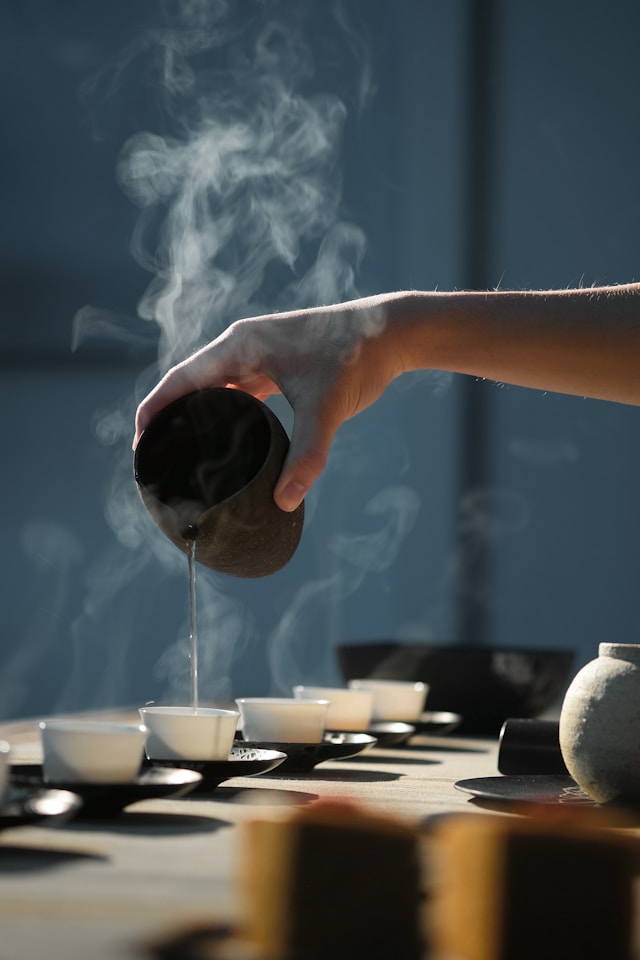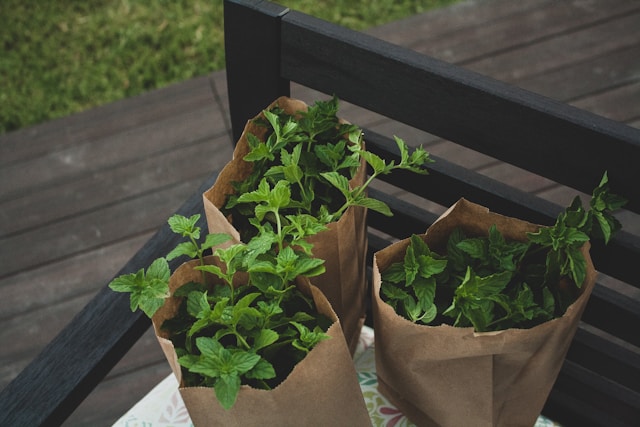Herbs are powerful because they contain a wide range of phytochemicals, which are natural compounds that have antioxidant, anti-inflammatory, and antimicrobial properties.
Herbs are powerful because they contain a wide range of phytochemicals, which are natural compounds that have antioxidant, anti-inflammatory, and antimicrobial properties. These phytochemicals can help to protect the body from disease and promote overall health.
The Science Behind Herbs
Phytochemicals are found in all plants, but they are particularly concentrated in herbs. This is because herbs are typically grown in nutrient-rich soil and are exposed to a lot of sunlight, which helps to produce phytochemicals.
Phytochemicals have a wide range of health benefits, including:
- Antioxidant properties: Phytochemicals can help to protect the body from damage caused by free radicals. Free radicals are unstable molecules that can damage cells and DNA, leading to chronic diseases such as cancer and heart disease.
- Anti-inflammatory properties: Phytochemicals can help to reduce inflammation throughout the body. Inflammation is a natural response to injury or infection, but chronic inflammation can lead to a number of health problems, such as arthritis and asthma.
- Antimicrobial properties: Phytochemicals can help to kill bacteria, viruses, and fungi. This can help to prevent infections and promote overall health.
The Benefits of Herbs
Herbs have been used for centuries to treat a wide range of health conditions. Some of the most common uses of herbs include:
- Boosting the immune system: Herbs such as echinacea and elderberry can help to boost the immune system and protect the body from infection.
- Reducing inflammation: Herbs such as turmeric and ginger can help to reduce inflammation throughout the body.
- Improving digestion: Herbs such as peppermint and chamomile can help to improve digestion and relieve symptoms such as gas and bloating.
- Relieving stress: Herbs such as lavender and valerian root can help to relieve stress and promote relaxation.
- Improving sleep: Herbs such as chamomile and passionflower can help to improve sleep quality.
How to Use Herbs

Herbs can be used in a variety of ways, including:
- Teas: Herbs can be steeped in hot water to make tea. This is a great way to enjoy the benefits of herbs without having to take supplements.
- Tinctures: Herbs can be extracted in alcohol to make tinctures. Tinctures are more concentrated than teas and can be taken in small doses.
- Capsules: Herbs can be encapsulated in gelatin or vegetable capsules. This is a convenient way to take herbs on the go.
- Culinary: Herbs can be added to food to add flavor and nutrients. This is a great way to get the benefits of herbs without having to take supplements or tinctures.
What are some common herbs that can be used to improve digestion?

Some common herbs that can be used to improve digestion include:
- Peppermint: Peppermint is a popular herb that can help to relieve gas, bloating, and indigestion. It also has antibacterial and antiviral properties, which can help to protect the digestive system from infection.
- Chamomile: Chamomile is a calming herb that can help to soothe the digestive tract and reduce inflammation. It is also helpful for relieving stress and anxiety, which can often contribute to digestive problems.
- Ginger: Ginger is a warming herb that can help to improve digestion and reduce nausea. It is also effective for relieving gas and bloating.
- Fennel: Fennel is a flavorful herb that can help to improve digestion and reduce gas. It is also helpful for relieving colic in babies.
- Caraway: Caraway is a spice that can help to improve digestion and reduce gas. It is also helpful for relieving nausea and vomiting.
- Cumin: Cumin is a spice that can help to improve digestion and reduce gas. It is also helpful for relieving diarrhea.
- Turmeric: Turmeric is a spice that has anti-inflammatory and antioxidant properties. It can help to improve digestion and reduce gas, bloating, and indigestion.
These are just a few of the many herbs that can be used to improve digestion. If you are experiencing digestive problems, talk to your doctor about which herbs may be right for you.
How to Make Herbal Teas for Improving Digestion
Herbal teas are a great way to enjoy the benefits of herbs for improving digestion. They are easy to make and can be enjoyed hot or cold.
To make an herbal tea for improving digestion, you will need:
- 1-2 teaspoons of dried herbs
- 1 cup of boiling water
- A tea infuser or strainer
- A mug
Instructions:
- Place the dried herbs in the tea infuser or strainer.
- Pour the boiling water over the herbs.
- Steep for 5-10 minutes, or according to the package directions.
- Remove the tea infuser or strainer and enjoy your tea.
You can experiment with different herbs to find the ones that you like best. Some good combinations for digestive teas include:
- Peppermint and chamomile
- Ginger and turmeric
- Fennel and caraway
- Cumin and coriander
- Licorice and marshmallow root
You can also add honey or other natural sweeteners to your tea to taste.
Tips for Making Herbal Teas
- Use fresh, high-quality herbs for the best flavor and potency.
- Do not oversteep your tea, as this can make it bitter.
- Drink your tea warm or hot to get the most benefits.
- You can store herbal teas in the refrigerator for up to 3 days.
Precautions
Some herbs can interact with certain medications. Therefore, it is always best to consult with a healthcare professional before using herbs, especially if you have any underlying health conditions or are taking medications.
Enjoy your herbal teas and happy digestion! potent taste.
- Steep your tea for the full 5-10 minutes. This will allow the herbs to release their full flavor and medicinal properties.
- Sweeten your tea to taste, if desired. Honey is a good natural sweetener that also has some health benefits.
- Drink herbal teas regularly to improve your digestion. Aim to drink 1-2 cups of herbal tea per day.
If you are experiencing digestive problems, talk to your doctor about which herbs may be right for you.
Conclusion
Herbs are powerful natural remedies that can help to improve your health and well-being. By incorporating herbs into your diet and lifestyle, you can take advantage of their many health benefits. growing conditions, and preparation methods.
- It is important to consult with a healthcare professional before using herbs, especially if you have any underlying health conditions or are taking medications.
- Some herbs may interact with certain medications, so it is essential to disclose your herb use to your doctor.
- Herbs can be used in various forms, including teas, tinctures, capsules, and culinary preparations.




